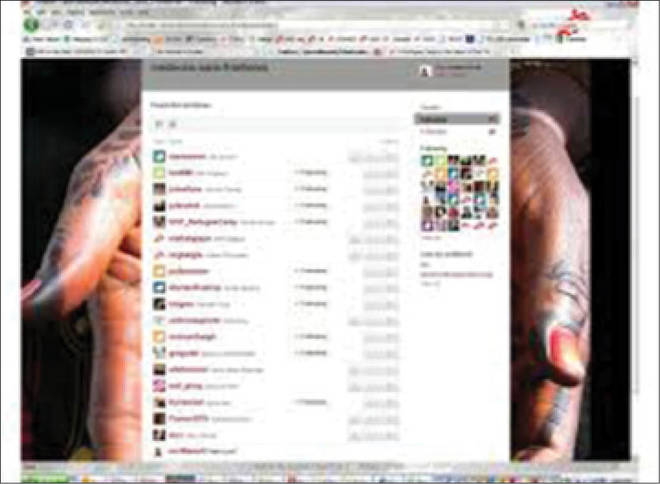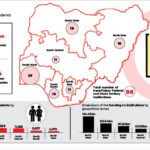
The social media did not take the world by storm. They crept up on us. They are the newest tools in man’s search for information, education and entertainment in the classical definition of journalism. The human thirst for new systems of delivering information, particularly outside the traditional news channels, is unquenchable. The traditional channels of information dissemination have a new name – mainstream media – to distinguish them from the new system of purveying information once derided as gossip in polite companies.
People tend to distrust information from the mainstream media because they believe their news is not always without some taint of official truths that weigh as half-truths on the scale of truth. You would do well to remember that open governments are anything but open. Sanitised government information fed to the public tends to cause stomach ache.
This created room for the acceptance of the social media as alternative channels of information dissemination. Their arrival on the crowded information market place created some global buzz because of the possibilities, if not the promises, of their capacity to give the public the truth, the unvarnished truth and the full facts. Theoretically, at least, that was the hope they raised. They seized people’s imagination in liberal democracies and even dictatorships. We were too taken in by the promise they dangled before us to be critical about their place and relevance in modern information dissemination. Seems we are about to pay the price.
To be fair, none of us can deny that the social media delivered on their early promise. `They birthed the Arab spring in 2010. Dictators were toppled one after the other in Egypt, Libya and some other Arab nations. It was the first demonstration of the power of the social media using nothing more lethal than the personal computer and the mobile telephone. One man sitting before his computer screen in Egypt hatched and spread a revolution within and among Arab nations that changed for ever the architecture of their governance. Since then, the social media have waxed stronger in all climes and challenging the mainstream media. The race for being the first to past the post with hot information has never been fiercer.
Those who manage public and private sector information have my sympathies. They can no longer mislead and misinform the public and get away with it. The eyes of the social media, like those of big brother, are on them. It seems the people’s right to know has taken on a new meaning.
A couple of months ago, the social media exposed under-aged voters in Kano State. It was not possible for the public relations facts spinners in INEC to deny what the mobile phone cameras revealed. INEC was forced to admit that underage voters had always slipped through its net in various parts of the country. The commission will now hopefully mend the net to keep out underage voters, plug one more source of election rigging and protect the integrity of the elections.
But good things have a rather funny way of not lasting as long as one would wish. The social media century seems destined to end ere it began because they are beginning to deliver on their promises in the breach. Discerning people are beginning to worry that the social media like the mainstream media, have already succumbed to the manipulation of facts to satisfy economic, political and other exigencies. They are the main manufacturers and purveyors of fake news here and elsewhere. They have managed to elevate gossip into a fine art of information dissemination. And so, the social media do not feed the public with the green grass of truth but the dried grass of unsubstantiated half-truths, untruths, lies and fake news. If you would excuse a cliche, it boggles the mind.
The 2016 American presidential election has become a reference point and might mark the low point in the relevance of the social media to our information needs. The controversial Russian meddling in the election threw rotten eggs in the faces of Google, Twitter and Facebook, the main platforms for the social media.
In its issue of November 4, 2017, the Economist magazine examined the role of the social media in democracy. It sought some answers to its own apt question in the headline: Do social media threaten democracy? It is a question that professionals in the mainstream media who care enough about the role of the media – social or mainstream – in feeding the public with facts, should begin to examine. The fact is that we, like sheep in a feeding frenzy, tend to lap up whatever is served on the social media as the truth for no better reason than that their unorthodox method of news gathering and dissemination dazzles the public.
The magazine argues that social media amplify divisions in the society. In the amplification of such divisions lies the possibility of distortions. As it is in real war, so it is in class war fare waged in the competitive world of politics and economics: truth inevitably bleeds first. We click and we scroll and invariably lose our way in the labyrinth of advertisements made to masquerade as information in the social media.
The truth is that the social media, like the mainstream media, are driven by the imperatives of economic gains. Organisations so driven by the very human need to accumulate wealth or survive do not always play fair and square. So, perhaps, it would be unfair to tie the social media to the stakes for this sin alone.
There are at least two things we should worry about in according the social media the right to inform and educate us on their own terms. One, their latitude. The social media are not bound or constrained by ethics. It seems they are blissfully unaware of the laws of libel, that frightening Sword of Damocles hanging over the heads of publishers and editors in the mainstream media. Two, they are not regulated. No nation has as yet enacted legislation on the social media. Three, their assumed freedom to do as they wish is a cynical exercise of power without responsibilities. Facts are not checked and cross-checked and people and institutions are damaged by the reckless race to give out information.
The history of the news media has no chapter on unlimited freedom granted to any media. Some regulation of the social media and online publications cannot be seen as an attempt to muzzle them. It would be in the interest of the public. The social media should be held to the same high standards as the mainstream media. As the Economist noted, “Social media are being abused. But, with a will, society can harness them and revive that early dream of enlightenment. The stakes for liberal democracy could hardly be higher.”

 Join Daily Trust WhatsApp Community For Quick Access To News and Happenings Around You.
Join Daily Trust WhatsApp Community For Quick Access To News and Happenings Around You.


